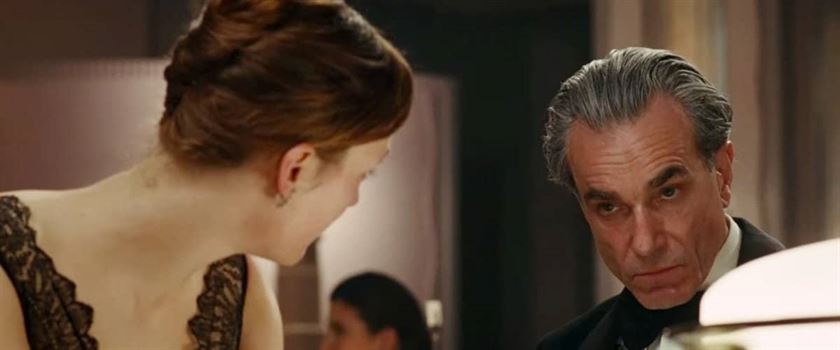With strong characters and complex relationships, “Phantom Thread” is a strange, elegant and uncomfortable roller coaster ride of a film.
Going into “Phantom Thread,” I was only aware of two things: this film had something to do with fashion, and this was Daniel Day-Lewis’s bow out performance before he retired from acting. I could not help but feel bittersweet as I took my seat in the theater among many elderly moviegoers who were all there for the exact same reason: to watch Day-Lewis perform on the silver screen one final time.
“Phantom Thread” was written and directed by film auteur Paul Thomas Anderson, who returned to theaters after 2014’s “Inherent Vice.” The film marks Anderson’s second project with Day-Lewis, after previously working together on 2007’s “There Will Be Blood.”
Day-Lewis plays Reynolds Woodcock, a famed dress designer based in 1950s London. He lives an organized life, which paired with his undying passion for his occupation, has led to his failure in relationships.
“I’m certain I was never meant to marry,” Reynolds said. “I’m a confirmed bachelor. I’m incurable.”
However, his organized lifestyle is soon challenged when he meets Alma, a waitress played by Vicky Krieps. Her headstrong personality clashes with Reynolds’ need for control and structure.

Vicky Krieps and Daniel Day-Lewis star in “Phantom Thread.”
Photo courtesy of IMDb.com via Focus Features
The film puts up an outer appearance of elegance, set in the upper class scene of couture Britain. Reynolds presents himself and his business in an extremely formal manner whenever visited by clients such as heiresses, countesses and members of both domestic and foreign royal families. He makes each dress custom and stitches a secret message into every one, making each garment truly one of a kind.
Reynolds manages to put up a pleasant and dignified front. Unbeknownst to his clientele and the rest of the outside world, his need for order and peculiarly specific habits make working for him almost unbearable, let alone being in a romantic relationship with him.
The only person who seems to tolerate Reynolds and his overly compulsive tendencies is his sister Cyril played by Lesley Manville, who acts as his right hand. She manages his business and daily activities but does not let his stubbornness get to her head. She retains her own strength and is able to stand her ground.
Alma puts up her own front, originally seeming quiet and passive. Reynolds views her as the perfect model, but she soon proves to be more than just another model, challenging his single minded behaviors with her own free spirit.
“Phantom Thread” is a classic case of never judge a book by its cover but with its own twisted spin on the expression. The film’s setting and Reynolds’ career in the couture fashion industry deliver a sense of refinement and sophistication, but as the film goes on it is realized how much the characters are truly hiding, unveiling a world of discomfort, dissatisfaction and obscenity.
This film makes for a truly strange moviegoing experience, though this is a good thing. Anderson has audiences scratching their heads and questioning every aspect of it, from the characters and intentions to their relationships with one another.
Day-Lewis pours his heart into what could be one of the best performances of his career. He clearly decided to retire in memorable style. However, as his character suggests, he would prefer that we not think of a future without him appearing in our movies. Instead, let’s enjoy his presence and acting abilities for one final hoorah.



